Normcore to MermaidCore; IPR and Capital in Tariffland; RetailCraft update and links
"You have shifted from Normcore to Dadcore", opined CostCentre#1. Is it a compliment? It's not. A look at post-tariff intellectual capital moves; RetailCraft updates and more - in no particular order.
Normcore and beyond
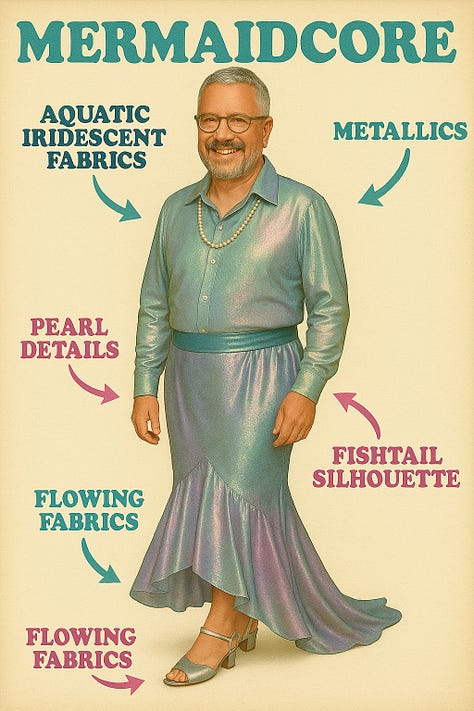
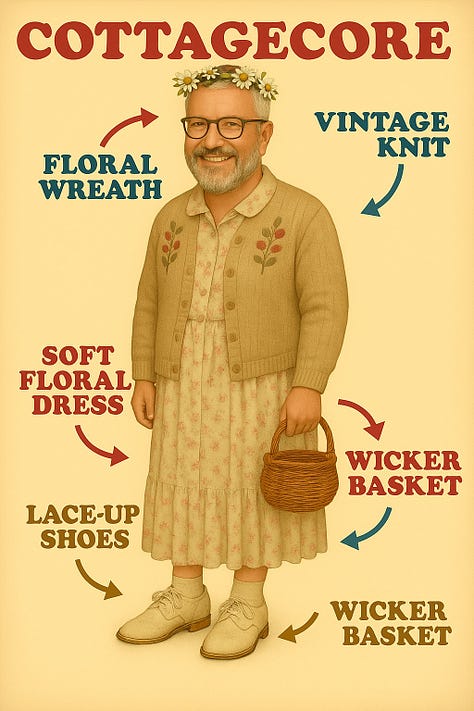

As I donned my rather lovely new selvedge jacket (thanks Son of a Stag for the Oni Denim “Kasuri” dobby-weave wonder), my beloved daughter (CostCentre#1) opined that I had moved from “normcore” to ‘dadcore’. I thought I’d better check out what that meant…
The various “-core” words are a short-hand for a dress style - a combination of brands, clothing and styling. They are all back-formations from ‘hardcore’, denoting the most active, committed and dedicated members of a movement (presumably deriving from the hard core aggregates used in building?). Hardcore as a phrase is used in music, dance, pornography and politics to denote the most committed, extreme and fundamental elements of a genre.
The first of the ‘cores’ I was aware of was Gorpcore. My summary is ‘wearing outdoor technical clothing in an urban or low-activity setting’. I am guilty as charged, and wear my Patagonia and Arc’teryx kit with pride. This term was a reaction to “Normcore”, which denoted a bland, nearly anonymous and style-free approach to dressing. “Dadcore” seems a less complimentary version, and so with some googling help, here is a table of the ‘cores’…
These terms spread very quickly on social media, particularly TikTok for fashion and Pinterest for more home or decor-focused visualisation.
Like so many other back formations, its use is accelerating. Hamburger, beefburger, nothinburger. Watergate, CashforquestionsGate, boobgate…
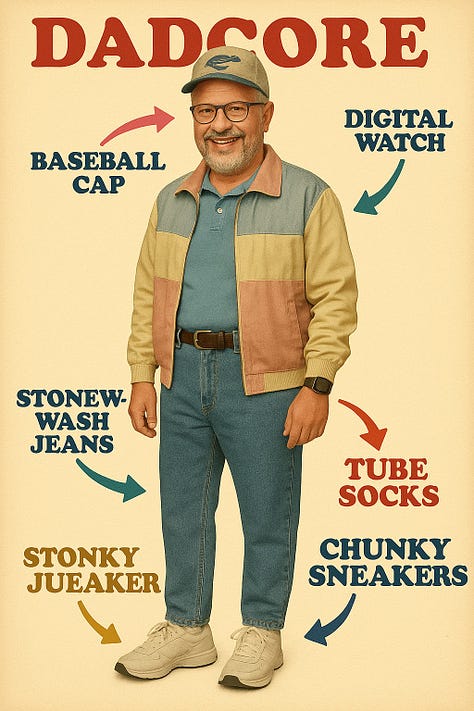
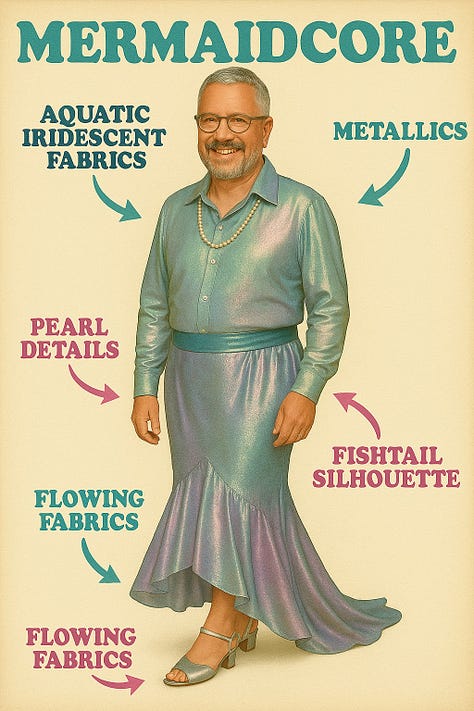
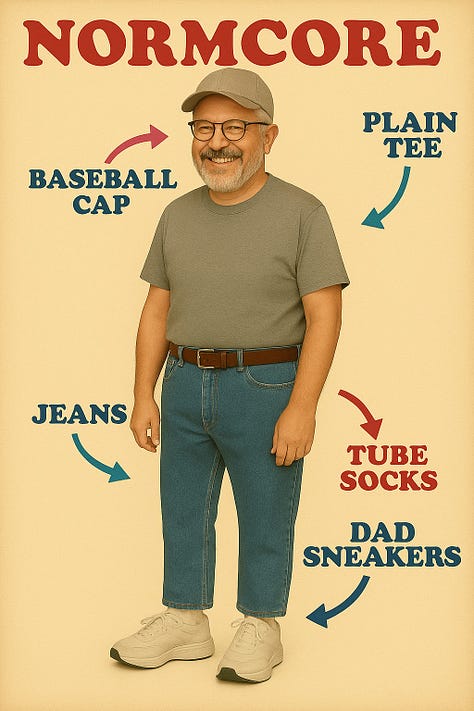
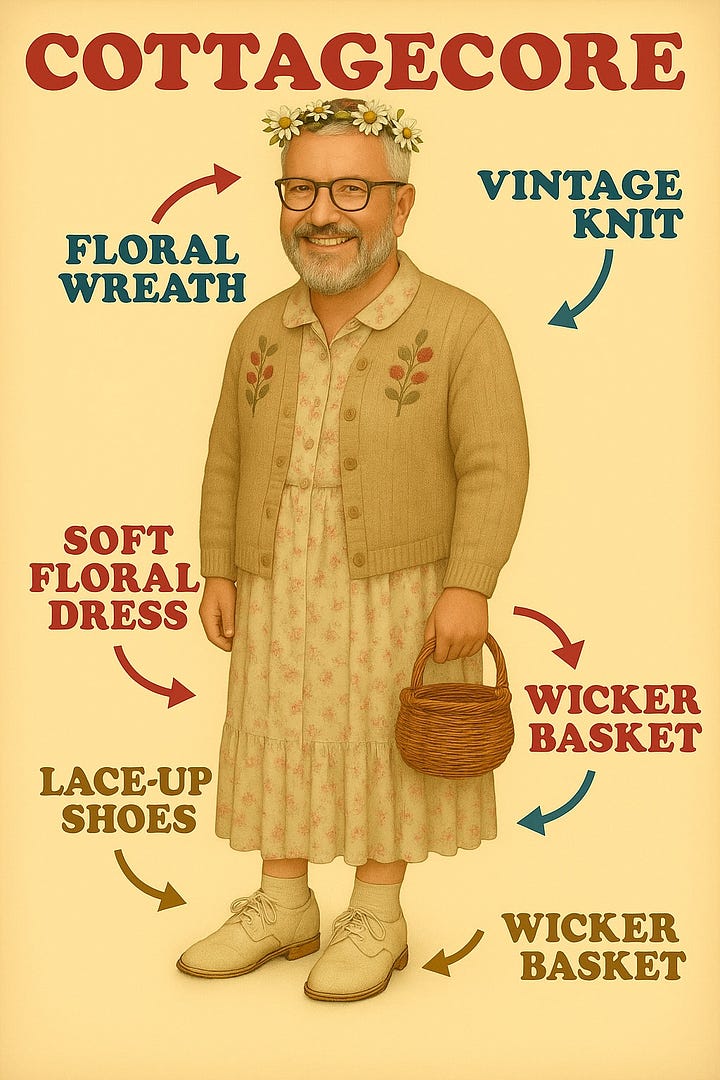

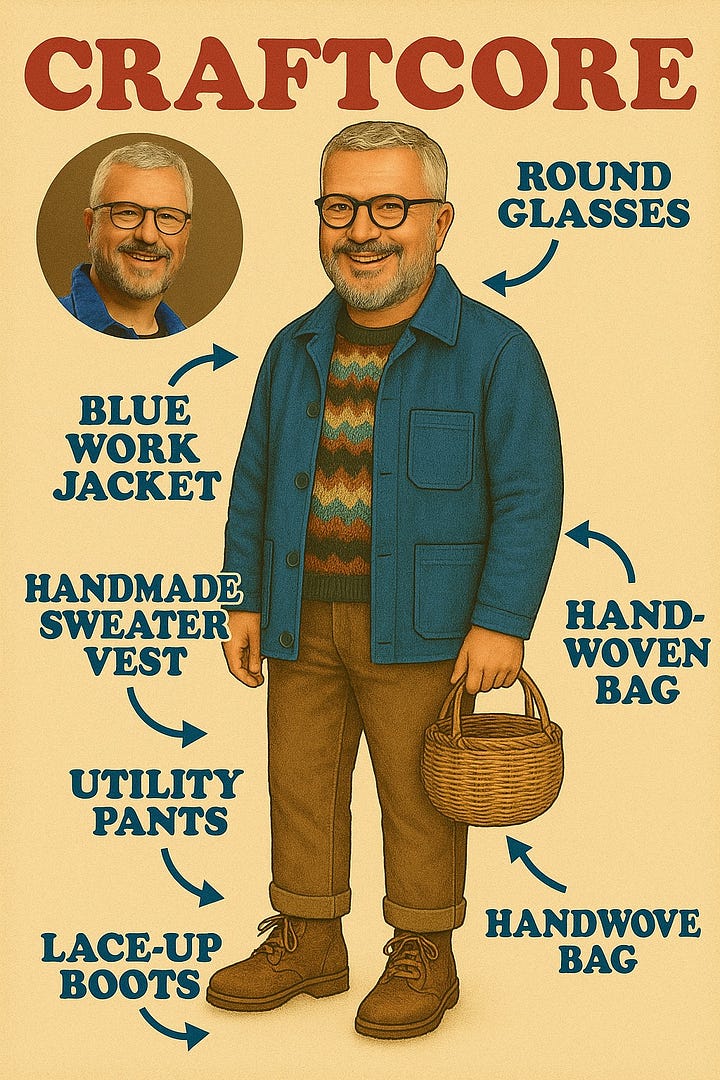
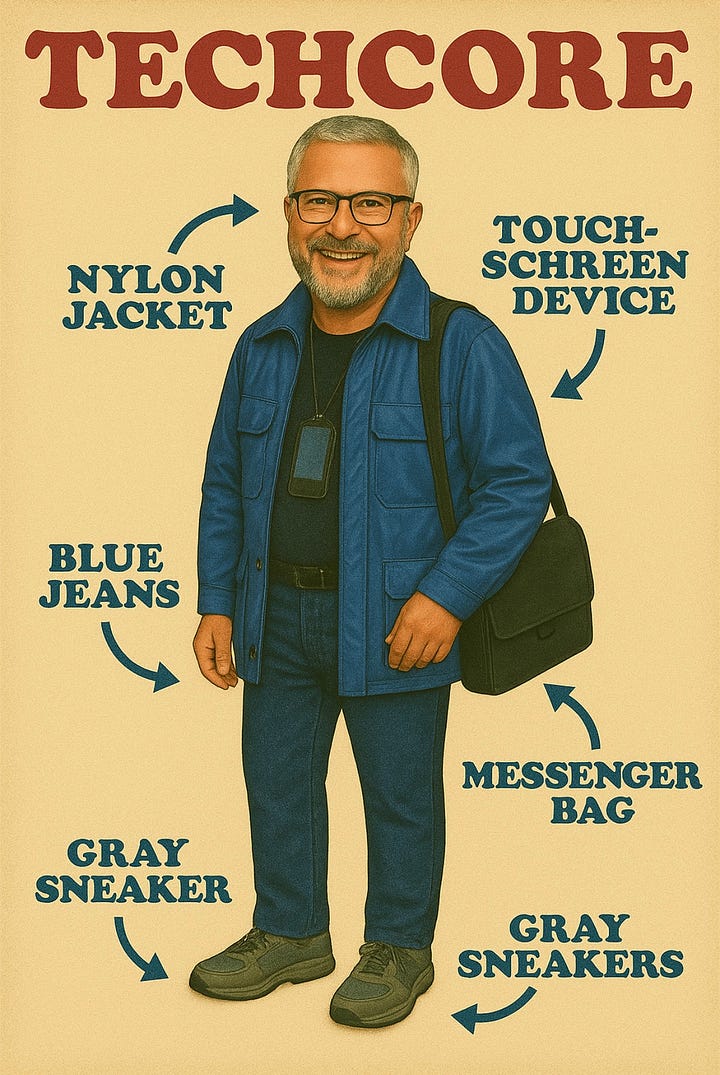
Other Notable "-cores"
A few of the more interesting ones that popped up during ‘research’ (ok, googling) were:
Farmcore: Rural, agricultural aesthetic; overlaps with cottagecore. Odd overtones of post-feminist dutiful home-makers that make a fetish of “home-making” (while looking like a model, of course). This has reached an apotheosis in a reality TV show, ‘The Secret Lives of Mormon Wives’1 - Desperate Housewives meets the Kardashians in full glamorous Farmcore living…
Balletcore: Ballet-inspired, soft pastels, tulle, and ballet flats (Miu Miu)
Goblincore: Grotesque, nature-inspired, celebrating the messy and wild aspects of the outdoors… What can I say? If you can watch Lord of the Rings, then you are ready for some Goblincore.
Corecore: A meta-trend and critique of "-core" excess, often through surreal video edits. Think nihilistic and impressionist Blade Runner clips, channelled through ironic Koyaanisqatsi vibes… Just proof that not only will media eat itself, but that all core can be ‘meta-cored’ in front of our eyes.
Why Do "-core" Trends Matter?
The "-core" phenomenon represents a new grammar of style and identity, where anyone can curate, remix, and broadcast their aesthetic allegiances. From the anti-fashion of normcore to the escapist fantasy of cottagecore and the functional chic of gorpcore, these trends chart the evolving relationship between digital culture, personal expression and creativity. For retailers, they carry more information than a hashtag and give an insight into a subculture and its passions (or humour). However, as the oldies and social vibe-checkers seek to name every nuance, it can become a label rather than an emergent identity, as cool as dad dancing, or the CraftCore knitted sweater or corduroy elbow patch (GeographyCore). ← You see, I can’t stop!!
I find the ‘cores’ a little more useful than broad fashion terms (eg Streetwear) since they can encompass more than clothing - music, decor, restaurant design… However, as with most generalisations, we need to see that they are offered with a knowing wink rather than as a definition.
What ‘cores’ do you cleave to? LMK - photos or images welcomed!
IPR and Capital since US tariffs
I mentioned in my roundup of tariffs in a previous newsletter that they focused on physical goods. The disruptions, reversals, deals and spats since then don’t need to be rehearsed here, but I thought it worth looking at the IPR aspects of the global disruption.
Europe’s looking to bolster its brains
Europe likes to wring its hands about access to capital on Wall Street, and venture chutzpah in Silicon Valley, but they seem to have galvanised their will to invest in intellectual capital.
The UK commits £86bn to ‘breakthrough’ R&D research2 - more tangible than naming a corridor ‘Silicon Fen’
France, Germany and the EU have launched programmes to lure US researchers to relocate to Europe. France’s Choose France for Science website makes a direct and clear pitch, while apparently some 300 scientists applied to Aix-Marseille University as it declared “intellectual asylum”
In a coherent post-Brexit move, it seems that the UK is to rejoin the “Horizon Europe” science funding and collaboration programme3.
This energy and focus are to be applauded, but the challenge for Europe is to match the venture and growth capital that is available to US sci-tech companies. A subject for future newsletters (if people are interested), but the US economy benefits from a much higher-than-Europe level of R&D investment4 from the government, military, space and tech communities, and this allows technology startups to get funding and real projects of scale. The US capital markets have had great liquidity and higher valuations for a while, and so are attracting more IPOs and shifted listings. From ARM in 2023 to Wise (formerly Transferwise) this month, there is a concern that the UK, specifically, and Europe in general, are losing out to the US as the locus for capital and growth.
As the logistics of the product-led tariffs are worked out, the ramifications of the intangible battles in the virtual, intellectual and capital spaces are set to continue.
RetailCraft podcasts
Two podcasts released recently…
The first is a conversation with Philipp Andree, Chief Commercial Officer of Douglas Group, Europe’s premium beauty destination with over 1900 stores.
The second is with Oskar Jacobsson, Director Customer Solutions at ICA Gruppen, Sweden’s largest grocer, where we discuss the concept of their store leaders being entrepreneurs.
Both podcasts are available on Apple or wherever you get your audio.
Tsonduku
Tsundoku (積ん読) is the phenomenon of acquiring reading materials but letting them pile up in one's home without reading them. Google commits $150mn to develop AI glasses with Warby Parker
Cash for glasses
Anthropic’s latest AI resorts to blackmail to prevent itself from being switched off - https://www.morningbrew.com/stories/2025/05/24/having-an-affair-dont-let-claude-4-find-out.
”That’s my emotional support bot, not a girlfriend”Welsh thatching and ship figurehead carving added to UK crafts red list - https://www.theguardian.com/lifeandstyle/2025/may/13/uk-crafts-red-list-welsh-thatching-ship-figurehead-carving
The Fish Doorbell - https://visdeurbel.nl/en/
Endmatter
Thanks for reading. Let me know if you have any feedback, suggestions for topics, or even contributions. In between newsletters, there is Linkedin and Instagram, and of course, the RetailCraft podcast and RetailX analysis.
A la prochaine.
https://www.bbc.co.uk/news/articles/c20ndp1yzkxo
https://www.theguardian.com/technology/2025/jun/08/ministers-commit-to-86bn-for-uk-science-technology-research-development
https://www.ukro.ac.uk/news/uk-secures-500m-in-eu-science-funding-after-rejoining-horizon-europe/
See the Geeknews substack for some interesting points, made at pace…




